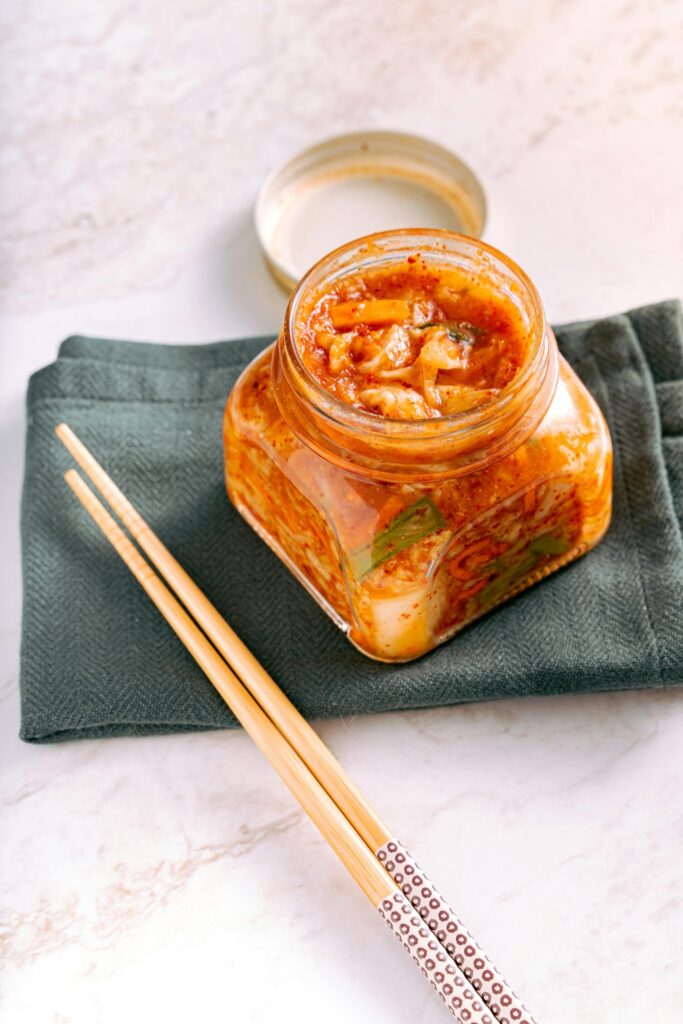
Menopause and immunity: Do our immune systems tank in midlife?
Are you stuck with a cold that just won’t go away? Are you picking up every bug that goes around the office? Have you just been diagnosed with Rheumatoid arthritis or Hashimoto’s?
You’re not alone. Midlife is the time when hormones, life stress, and immune health collide and things get messy. So let’s get into this and find out exactly why a once strong immune system can suddenly start to fail when menopause arrives.
A quick guide to the immune system
Your immune system is a complex network of cells and tissues located in different parts of the body. There are two branches to this system: the innate and the adaptive.
The innate immune system is your first line of defense against infection, made up of:
- Barrier membranes like your skin and the cells that line your nose, throat, digestive system, and lungs. These barriers block harmful substances from getting into your system. They also host communities of microorganisms like your gut microbiome.
- Saliva and stomach acid: These two strong substances that can kill harmful bugs.
- Natural killer cells (NK cells), mast cells, and white blood cells. These cells neutralize invading pathogens and sound the alarm call to alert other parts of the immune system.
The adaptive immune system lives up to its name: It adapts and shapes itself according to the germs and infections you pick up. It’s where you’ll find T-cells and B-cells, some of which hold “memories” of pathogens. Then, if you encounter that particular bacteria or virus again, your immune system remembers what to do and can zap it even faster the second time around.
What even is autoimmunity?
Your immune system is designed to identify harmful microbes and deal with them without damaging healthy cells. Unfortunately, the system can sometimes go wrong and the body mistakenly attacks its cells instead, in a process called autoimmunity.
Conditions like Celiac disease, Rheumatoid arthritis, Hashimoto’s disease, and psoriasis are all examples of autoimmunity.
For reasons that science doesn’t yet fully understand (probably because women’s health is woefully under-researched), autoimmune conditions disproportionately affect midlife women. For example:
– 60-70% of Americans diagnosed with Celiac disease are women. The most common time to be diagnosed is between the ages of 40 and 60 but as diagnosis takes an average of 6-10 years, many younger women are suffering too.
– 70% of people living with Rheumatoid arthritis are women. On average, symptoms develop between the ages of 30 and 60 although children and older people can develop RA too.
– Hashimoto’s thyroid disease is 4-10 times more common in women than men. And again, the average age of diagnosis is in midlife, between 30 and 50 years.
So, what’s going on here? Why do midlife GALs have a higher risk of developing autoimmune conditions?
For reasons that science doesn’t yet fully understand (probably because women’s health is woefully under-researched), autoimmune conditions disproportionately affect midlife women. So, what’s going on here? Why do midlife GALs have a higher risk of developing autoimmune conditions?
How menopause affects your immune system
This risk can partly be explained by the hormonal fluctuations of perimenopause and menopause. Estrogen and progesterone are often only thought of as reproductive hormones but in fact, they influence immunity too. And when they start to fall, there’s a knock-on effect on immune function.
Progesterone is known to have a modulatory effect on mast cell activity (mast cells release histamine which triggers inflammation and other symptoms) and T-cell development. It also relaxes smooth muscle tissue, which has an impact on gut motility and digestive function — and we’ll see in a moment why this is linked with immune health.
Estrogen regulates parts of your innate immune response to viral, bacterial, and fungal infections. It influences inflammatory pathways and most importantly, it interacts with your gut microbiome. This diverse colony of microbes plays a major role in regulating immune health. This two-way relationship between gut flora and estrogen means that menopause is a time when things can start to go wrong.
Stress, menopause, and immunity
As well as all the ups and downs of hormonal fluctuations, GALs are also contending with a vast array of midlife stresses. Poor sleep, family worries, financial concerns, caring responsibilities, career demands, other health conditions — all these different stresses have an impact on your immune resilience.
Chronic stress can lead to immune dysregulation. Stress hormones disrupt the delicate balance of your gut microflora which in turn leads to poor immunity, more inflammation, and a confused immune response.
A stressful phase or even the physical stress of a bad infection can be a trigger for autoimmune disease. In these cases, the immune system confusion leads to the body fighting itself, attacking cells in the joints (Rheumatoid arthritis), skin (psoriasis), or thyroid gland (Hashimoto’s disease).
Top 7 tips to support your immune system during menopause
Now that we’ve seen how strong the link is between hormones, menopause, and immune health, let’s explore everyday ways you can support a healthy, balanced, immune response.
1. Check your vitamin D levels
Vitamin D is essential for a healthy immune system but deficiency is a problem in many parts of the world including the U.S. Black women and women of color have a higher risk of deficiency than their white counterparts because skin pigmentation reduces vitamin D production in the skin. Even so, everyone needs to have their levels checked at least once a year. Take a supplement during the winter months, and for the rest of the year too if your levels are consistently low.

2. Nourish your gut microflora
The beneficial microbes in your gut love to feast on fiber from whole grains, nuts, seeds, vegetables, beans, and pulses. Fermented foods are helpful too, as they can top up your levels of good bacteria. Include sauerkraut, kimchi, kefir, or natural yogurt several times a week, and enjoy plenty of fiber-rich foods each day.
The beneficial microbes in your gut love to feast on fiber from whole grains, nuts, seeds, vegetables, beans, and pulses. Fermented foods are helpful too, as they can top up your levels of good bacteria. Include sauerkraut, kimchi, kefir, or natural yogurt several times a week, and enjoy plenty of fiber-rich foods each day.
3. Swap gluten-containing grains for naturally gluten-free options
Gluten is a type of protein found in wheat, barley, and rye. It can be problematic for many people, especially those with autoimmune conditions. Wheat is particularly problematic as modern wheat is bred to contain high levels of gluten for industrial breadmaking processes. However, we humans haven’t had time to evolve the capacity to digest it!
If you know you react to gluten, or if you suspect it may be a problem (signs to look out for include fatigue, brain fog, bloating, and joint pains) swap to naturally gluten-free alternatives like buckwheat, amaranth, quinoa, rice, oats, and corn.
4. Eat antioxidants, daily
Nutrients like vitamins C, E, and A, zinc, and selenium are known as antioxidants. They support a healthy immune response and aid recovery from illness and injury. Everyday food sources include: Berries, kiwi, sweet potato, carrots, watercress, broccoli, avocado, olive oil, nuts, and seeds.

5. Keep an eye on iron levels
Heavy periods during perimenopause can lead to low iron levels. Iron is a key nutrient for immune health so it’s worth including iron-rich foods every day. Opt for good quality red meat, liver, eggs, dried apricots, lentils, blackstrap molasses, and leafy green vegetables.
6. Swap cocktails for mocktails
Alcohol is known to impair your ability to fend off infection and slow down recovery from illness. If you’re picking up frequent infections, struggling to shake one off, or have an autoimmune condition, switch to alcohol-free drinks as much as possible.
Heavy periods during perimenopause can lead to low iron levels. Iron is a key nutrient for immune health so it’s worth including iron-rich foods every day. Opt for good quality red meat, liver, eggs, dried apricots, lentils, blackstrap molasses, and leafy green vegetables.
7. Get a good night’s sleep
Sleep provides recovery time. Not just from illness but from everyday stress and activity. If we don’t get enough recovery time, our immune defenses start to fail — even having less than 6 hours of sleep a night increases your risk of catching the common cold. If you’re struggling to get a full night’s shuteye, check out our library of sleep articles dedicated to helping you rest well.
The rollercoaster ride of peri/menopause affects every part of your body — including your immune system. Make these small changes to your diet and lifestyle as often as you can to help restore balance to your defenses and fend off infections.



